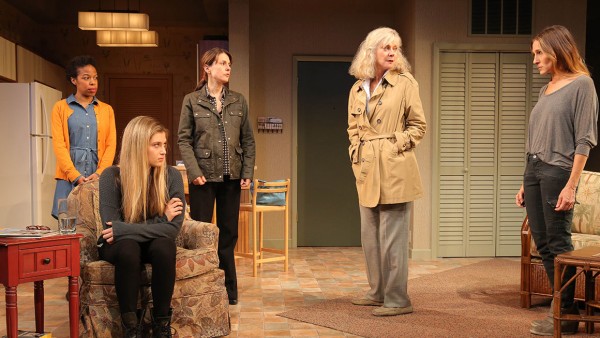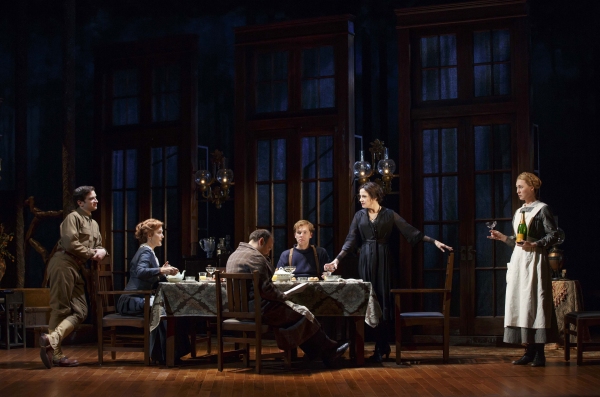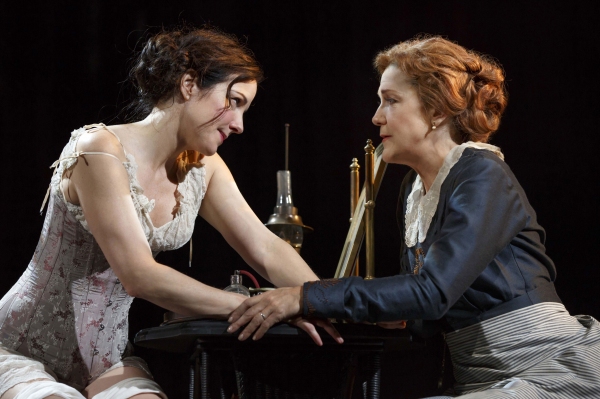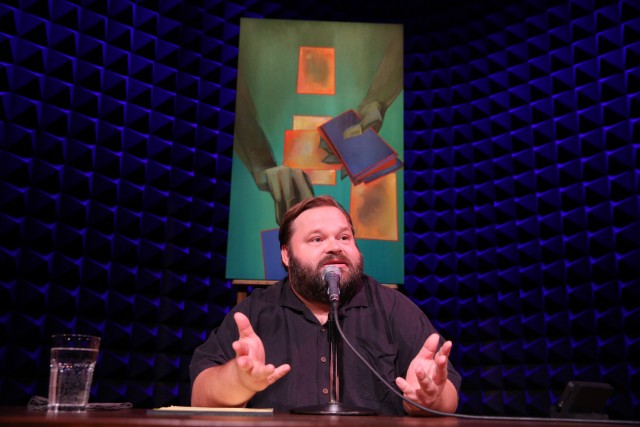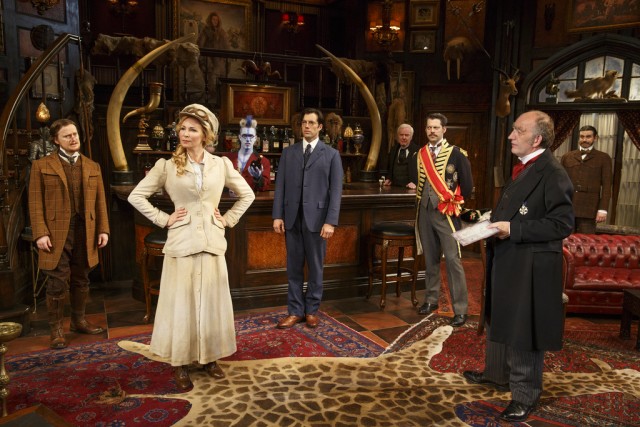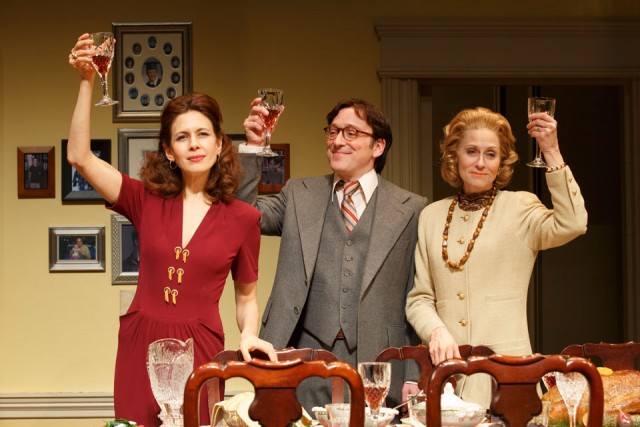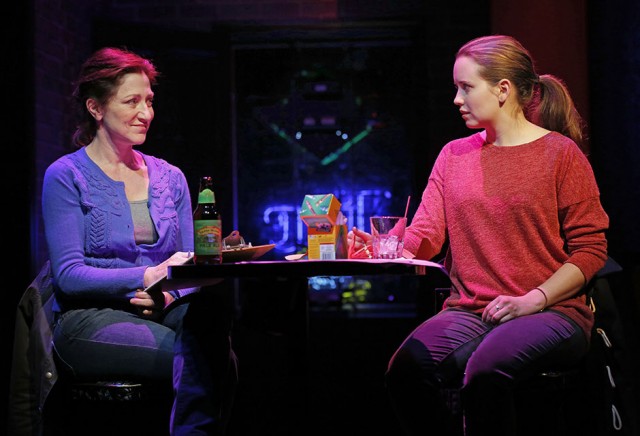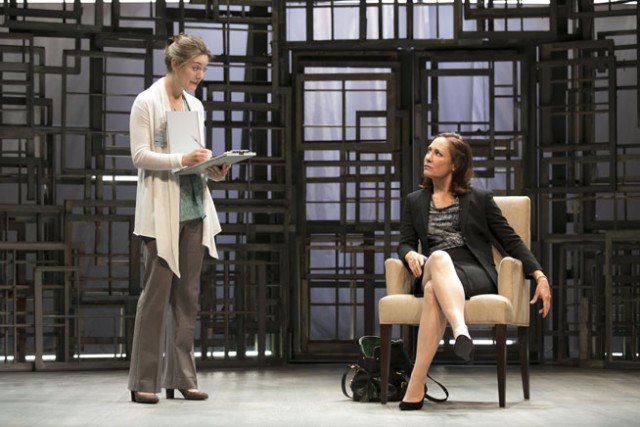Manhattan Theatre Club
New York City Center Stage 1
Extended through February 9, $105
212-581-1212
www.thecommonsofpensacola.com
www.nycitycenter.org
Earlier this year, Steven Levenson’s The Unavoidable Disappearance of Tom Durnin at the Roundabout examined the Bernie Madoff scandal through the eyes of a man returning from prison. Now Manhattan Theatre Club looks at the crisis from a very different point of view in Amanda Peet’s engaging and involving The Commons of Pensacola. Blythe Danner stars as Judith, a grandmother banished to live in shame in a low-rent Florida retirement community after her husband gets nailed by the Feds. With Thanksgiving approaching, Judith is visited by her forty-three-year-old daughter, Becca (Sarah Jessica Parker), and Becca’s twenty-nine-year-old boyfriend, Gabe (Michael Stahl-David). A fading actress, Becca wants to team up with Gabe, a photojournalist, to make a documentary series about Judith, focusing on her former extravagant lifestyle and what her days are like now, without any money or the luxury she grew to be so familiar and comfortable with. They are soon joined by Becca’s sixteen-year-old niece, Lizzy (Zoe Levin), who has snuck away to see her grandmother against her mother’s wishes. But soon Lizzy’s mom, Becca’s sister, Ali (Ali Marsh), who had sworn never to see their mother again, is there as well, and some damaging secrets and lies that have been bubbling just below the surface threaten to explode.
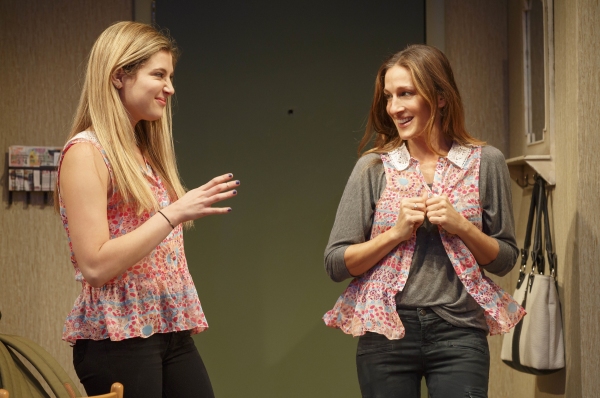
Lizzy (Zoe Levin) has a little too much in common with her aunt Becca (Sarah Jessica Parker) in Amanda Peet’s playwriting debut (photo by Joan Marcus)
Peet, who has appeared in such films as The Whole Nine Yards and Please Give and such television series as Studio 60 on the Sunset Strip and The Good Wife, makes a more than admirable debut as a playwright with The Commons of Pensacola. Despite a few questionable plot twists, the dialogue is sharp and the characters wholly believable, propelled by MTC artistic director Lynne Meadow’s noninvasive direction and Santo Loquasto’s clean and tidy set, which features a glass door to the outside that is jammed shut. Danner and Parker make a natural mother and daughter team, playing off each other with a friendly ease; they previously teamed up in A. R. Gurney’s Sylvia, a 1995 MTC production in which Danner played a married woman and Parker played the stray dog her husband (Charles Kimbrough) just picked up in the park. Levin, who was in The Way, Way Back with Peet, fits right in as the niece who emulates her rather kooky aunt. Nihala Sun (No Child…) does what she can with the relatively predictable role of the black maid, Marsh is somewhat annoying as the annoying Ali, and Stahl-David (Cloverfield) is fine as Gabe, who becomes much more than just an innocent observer of this newly destitute clan. Continuing through February 9 at City Center, The Commons of Pensacola, which clocks in at a smooth, uninterrupted eighty minutes, might not be particularly deep, but it does offer a good balance of comedy and drama while depicting another side of the Madoff madness.
